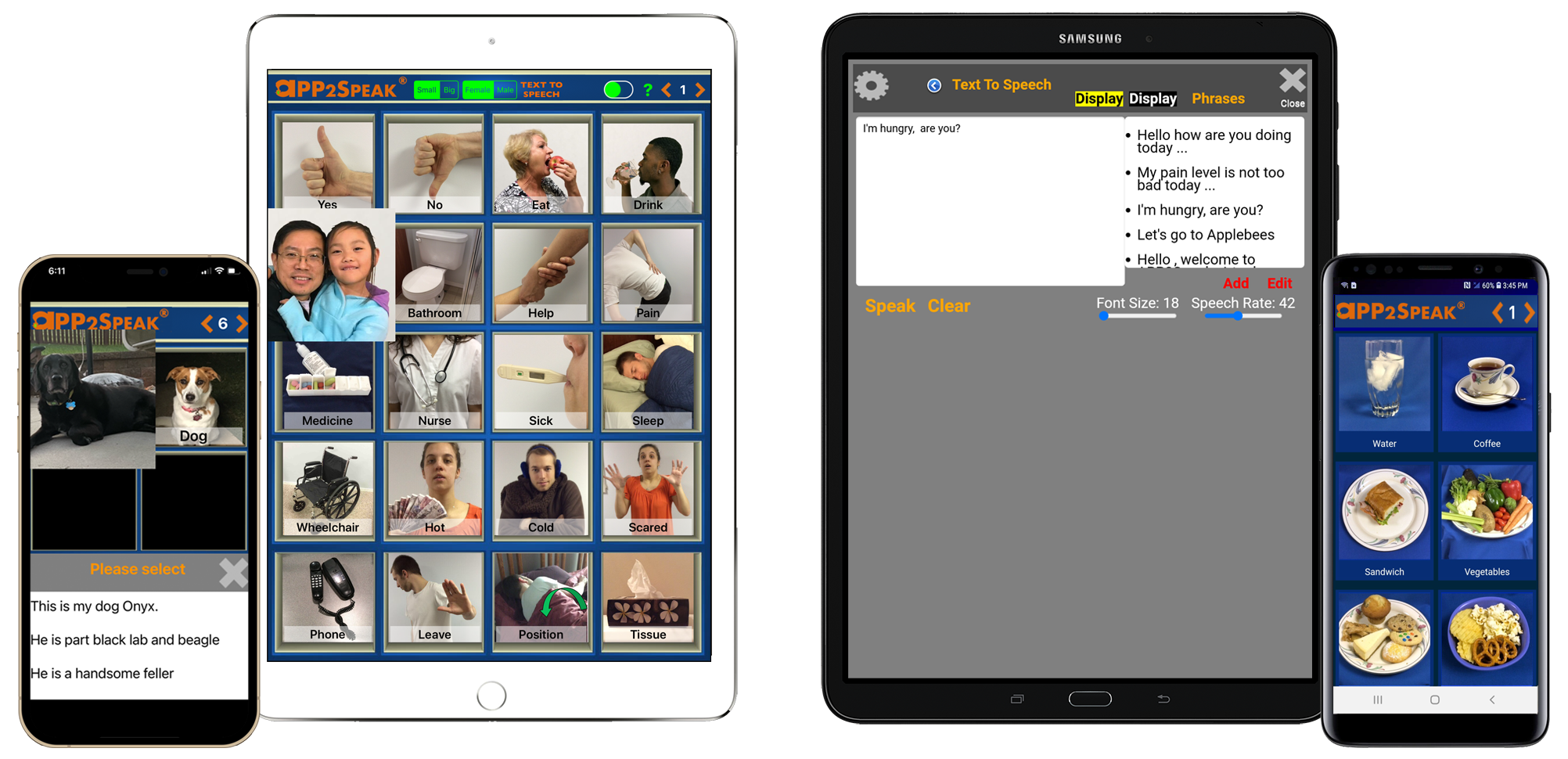
It’s April Again—This Autism Acceptance Month, Explore the Best AAC Apps for Autism Communication
There has been a lot of talk about autism in the news lately—and not just because it’s once again Autism Acceptance Month. Unfortunately, much of the talk I’ve been hearing has involved people disagreeing about the root causes of autism and whether autism is becoming more prevalent or simply being reported at higher rates due to changes in the definition of the condition in the last couple of decades. I think what’s really important to people with autism and their loved ones—namely,...
The Pros and Cons of Using Augmentative and Alternative Communication Apps for People Who Can’t Speak
If you’ve read even a few of the posts in this blog, you know that I’m a big proponent of communication apps for nonverbal adults. After all, as a Speech Language Pathologist, I regularly use speech assistance apps like the one I developed, APP2Speak, when working with my patients. For adults who have lost the ability to speak due to a stroke, brain injury, ALS, Parkinson’s disease, laryngectomy, or some other medical condition, communication can become a daily challenge. For many of these...
Breaking Barriers: How APP2Speak and Apple’s Eye Tracking Technology Empower Nonverbal Adults with Degenerative Diseases
The Heartbreaking Challenge of Speech Loss Imagine waking up one day unable to express your thoughts, needs, or emotions. For millions of people worldwide with degenerative conditions like ALS, MS, or Cerebral Palsy, this is a daily reality. Losing the ability to speak can lead to deep frustration, social isolation, and a loss of independence. However, amazing advances in assistive technology now offer new ways to bridge the communication gap and restore a sense of control. Augmentative and...
Motivation and Validation for People Who Cannot Speak: Disney+’s New Movie, Out of My Mind
Recently, I watched a new movie on Disney+ called Out of My Mind, and it really hit home. The movie, about a mostly nonverbal sixth-grade girl with cerebral palsy, brought up so many memories (good and bad) of my early career as a Speech Language Pathologist. But more than that, it delivered a powerful message that I think any nonverbal adult or child—or their caregivers, for that matter—needs to hear. That’s why I decided to talk a bit about the movie and my reactions to it in this month’s...
The Color-Coded Chef: Building Life Skills for People with Intellectual Development Disorder through Cooking
If your family is like most families, the holidays are full of hustle and bustle—buying gifts, decorating the house, and making travel plans to see loved ones. And let’s not forget the cooking. And the eating. Lots and lots of cooking and eating. But not all families are the same. Some families include loved ones with an intellectual development disorder or other challenge that keeps them from participating fully in some of the festivities. That’s why I wanted to introduce you to a friend of...
Struggle Less this Alzheimer’s Awareness Month: How Speech Assistance Apps are Changing the Game for Caregivers of Those with Early-Stage Alzheimer’s
It’s a common scene in households all across America. A family member of someone with early-stage Alzheimer’s sits across from their loved one, trying to communicate. Their loved one tries to respond, but they search for words they can’t quite find. The caregiver tries again—this time slower, softer, clearer—but the response is often just a shake of the head, a confused shrug, or a frustrated gesture. Silence hangs in the air, heavy and unrelenting, and both people feel the ache of distance...
Don’t Settle for Silence: APP2Speak + Control Bionics’ Assistive Technology Devices Offer a Unique Solution for Progressive Diseases
There are many different ways that people can have their ability to communicate compromised, and as a practicing Speech Language Pathologist, I’ve seen them all. The most devastating situations, of course, come when someone doesn’t just lose their ability to speak, but also their ability to think like they used to be able to do. This can occur suddenly, as the result of a stroke or serious brain injury, or slowly, as is the case with Alzheimer’s disease or frontotemporal dementia. But there...
How to Communicate with Nonverbal Adults: 7 Best Inclusion Practices for Creating Connection
Picture this: The room is filled with people, but it feels strangely quiet. Your loved one sits there, their face tense, their hands fidgeting. You watch as their eyes dart around, searching for a way to join in. It’s like they’re standing on the other side of a glass wall—so close, yet completely cut off. And you? You’re just trying to figure out how to break through, to pull them back into the world they once navigated so easily. You’ve tried a thousand things—talking slower, using simpler...
The Case Against Silence: How Apps for Nonverbal Communication Put You Back in Control
Nonverbal Communication Ever feel like everyone else is having a conversation you’re not a part of? If you’re one of the hundreds of thousands of adults who have lost their ability to speak for one reason or another, you probably answered that question with a resounding “Yes!” You’ve got so much to say, so many thoughts swirling around in your head, but getting them out feels like trying to run a marathon with your legs tied. That’s the cruel irony of losing your ability to speak—your mind is...
From Homemade Switches to High-Tech App: Celebrating the 10-Year Anniversary of APP2Speak!
This month marks a significant milestone for me and everyone involved in the development of APP2Speak: our app's 10-year anniversary! Reflecting on our journey, it feels like a natural progression. My initial intention wasn’t to develop a speech app; I was simply addressing the communication challenges faced by my patients, continuously seeking better solutions. This relentless pursuit of improvement ultimately led to the creation of APP2Speak, a tool that has empowered hundreds to communicate...


